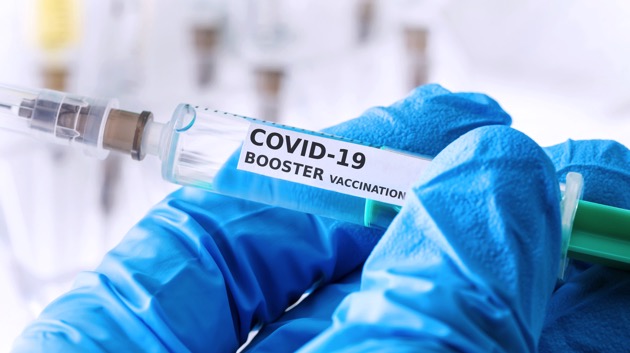
(WASHINGTON) — The Food and Drug Administration on Friday authorized booster doses of the Pfizer-BioNTech and Moderna COVID-19 vaccines for everyone 18 and older who is already considered fully vaccinated, teeing up many Americans to gain extra protection ahead of a possible winter surge in cases.
“The FDA has determined that the currently available data support expanding the eligibility of a single booster dose of the Moderna and Pfizer-BioNTech COVID-19 vaccines to individuals 18 years of age and older,” Dr. Peter Marks, director of the FDA’s Center for Biologics Evaluation and Research, said in a statement Friday morning.
“Streamlining the eligibility criteria and making booster doses available to all individuals 18 years of age and older will also help to eliminate confusion about who may receive a booster dose and ensure booster doses are available to all who may need one,” Marks said.
The process now moves to the Centers for Disease Control and Prevention’s advisory committee, which will review and debate the data Friday afternoon before taking a vote.
Then the CDC’s director, Dr. Rochelle Walensky, will need to give a final signoff.
The authorization came as many states face upticks in COVID-19 infections. Fourteen states plus New York City have officially told all of their residents to get booster shots ahead of word from the FDA. While the most effective way to stop rising cases is to vaccinate the unvaccinated, public health officials are also eager to drive down breakthrough cases as hospitals near capacity.
Currently, only those 65 and older and people at high-risk of contracting the virus, either because of their job, where they live, or underlying conditions, are eligible for Pfizer-BioNTech and Moderna boosters six months after their second shot. Everyone 18 and older who received Johnson & Johnson’s one-dose COVID-19 vaccine is eligible for a booster two months after getting their initial shot.
While that recommendation broadly covers the majority of vaccinated Americans, the booster authorizations would bring coverage to more young people — a group intentionally left out of the recommendations two months ago because experts wanted more data.
They raised questions about whether young people needed boosters given the strong protection the vaccines still provide against hospitalization and death for that age group. They also questioned whether there was enough data on the safety of a third shot for this group, since much of the data was on elderly populations who had begun to lose protection.
On Friday, the FDA said it had conducted a risk-benefit analysis with “additional real-world data.” Specifically, the FDA said the benefits of a booster dose outweighs the risk of myocarditis and pericarditis, heart inflammation conditions that have been linked to the mRNA vaccines in rare occurrences, mostly in teenage and young adult men.
“Throughout the course of the COVID-19 pandemic, the FDA has worked to make timely public health decisions as the pandemic evolves,” acting FDA Commissioner Janet Woodcock said in a statement Friday.
“COVID-19 vaccines have proven to be the best and highly effective defense against COVID-19. Authorizing the use of a single booster dose of either the Moderna or Pfizer-BioNTech COVID-19 vaccine for individuals 18 years of age and older helps to provide continued protection against COVID-19, including the serious consequences that can occur, such as hospitalization and death,” she said.
For its most recent request, Pfizer submitted more data. The clinical trials, which studied 10,000 adults of all ages, showed that people who received a third dose of the Pfizer-BioNTech vaccine had 95% efficacy against COVID-19 compared with those who received two shots, according to a press release from Pfizer on Nov. 9. Compared with unvaccinated people, Pfizer projected that efficacy was 98%.
While the CDC still needs to weigh in, delivering boosters for all adults would finally help President Joe Biden make good on a pledge from August, when he announced a plan to offer all Americans boosters eight months after their second shot.
The plan didn’t come to pass after pushback from FDA and CDC experts.
Copyright © 2021, ABC Audio. All rights reserved.
